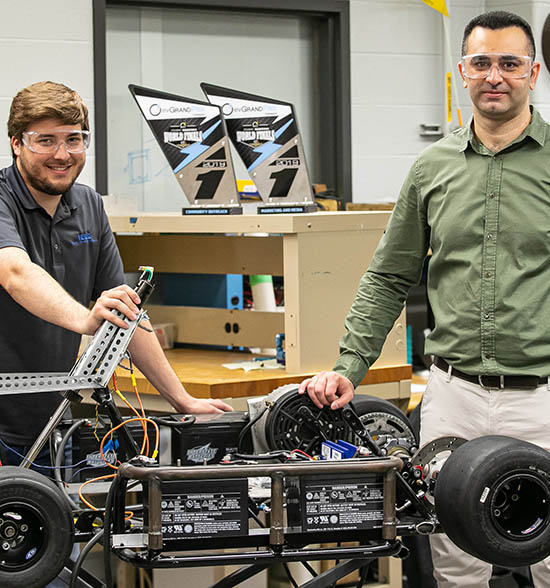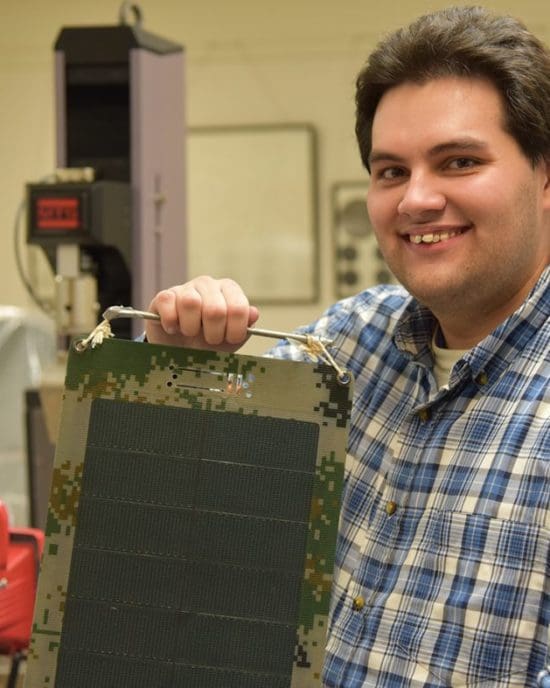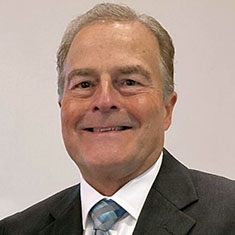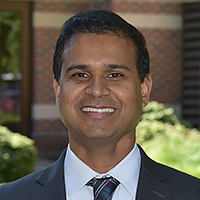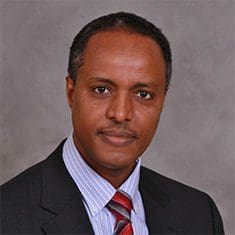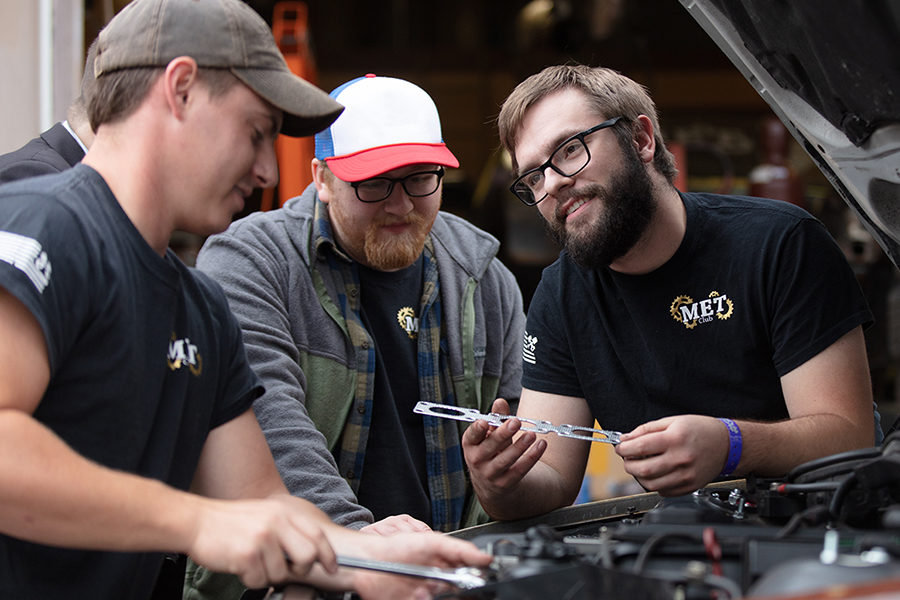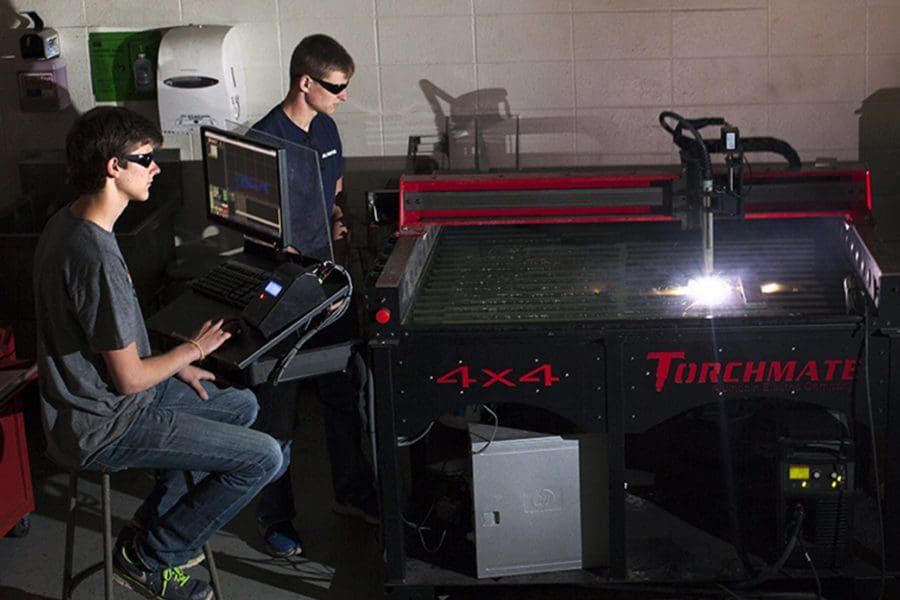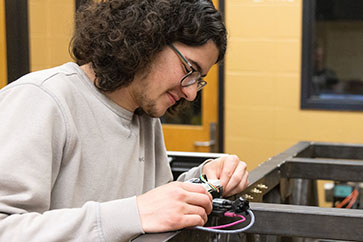
Master's Degree in Mechanical Engineering
Master of Science
Request Information
Mechanical Engineering Master’s Degree Program Overview
Mechanical engineers design and manufacture everything from small, individual parts and devices like microscale sensors and inkjet printer nozzles to massive, heavy machinery and large systems like rockets and space stations. Mechanical engineers are environmental stewards, looking for ways to build and maintain energy-efficient components, products, machines and systems.
Purdue University Northwest’s master’s degree program in mechanical engineering provides you with the skills you need to advance your career.
Department of Mechanical and Civil Engineering
Here at PNW – part of the world-renowned Purdue system – you’ll be mentored by experienced instructors in small classes that encourage close interaction. Our department maintains close connections with industry leaders in our region. We offer a competitive tuition rate compared to other mechanical engineering graduate programs in the U.S.
Mechanical Engineering Master's Degree Program Curriculum
Our thesis and non-thesis degree options give students the flexibility to adapt their program of study to their career goals.
View the Engineering Graduate Handbook (PDF)
In year one, you’ll choose a thesis advisor and engage in research as well as a literature review. In year two, you’ll choose thesis committee members and, in your last semester, defend your thesis.
If you choose the thesis option, you’ll complete:
- 3 credit hours of advanced mathematics at the 5000 level
- 18 credit hours from the approved list of mechanical engineering primary courses
- 9 credit hours of research
Non-thesis students focus on primary mechanical engineering courses with supplemental courses in mathematics, engineering, statistics or various other courses.
Mechanical Engineering Course of Study
The non-thesis option requires:
- 3 credit hours of advanced mathematics at the 5000 level
- 24 credit hours from the approved list of mechanical engineering primary courses
- 3 credit hours from a list of approved courses in engineering, mathematics, statistics, computer science, physics and life sciences
Mechanical Engineering Master's Degree Program Highlights
As an MSME student, you’ll study with esteemed researchers in world-renowned research institutes like CIVS and the Water Institute.
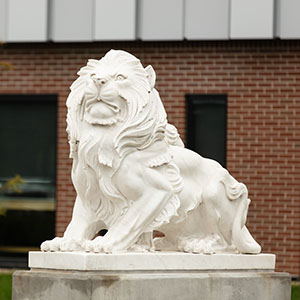
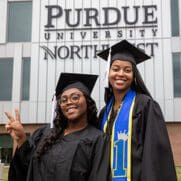
Mechanical Engineering Master's Degree Program Outcomes
As a graduate of this program, you’ll be able to:
- Identify, formulate and solve engineering problems
- Use skills and tools necessary for engineering practice
- Design and conduct experiments; analyze data
- Design systems or processes within realistic constraints
- Recognize ethical and professional responsibilities
- Understand the impact of engineering in economic, environmental and societal contexts
Mechanical Engineering Master’s Degree Program Employers
Our alumni work with some of the most innovative organizations across the region and around the world, including:
- General Motors
- Ford
- Northrop Grumman
Mechanical Engineering Master’s Degree Program Beyond the Classroom
We encourage you to get involved with organizations like:
- American Society of Mechanical Engineers
- Society of Women Engineers
- American Society of Heating, Ventilating, and Air Conditioning Engineers
Mechanical Engineering Master’s Degree Program Career Paths
Many mechanical engineers work in industries that manufacture machinery or automotive parts.
According to the Bureau of Labor Statistics, the median annual wage for mechanical engineers was $84,190 in May 2016.
Meet the Faculty
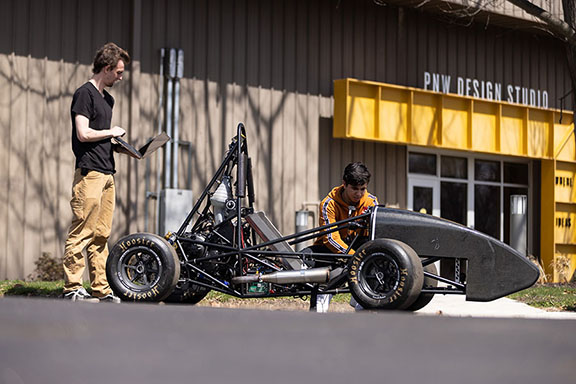
Earn a Master's Degree in Mechanical Engineering at PNW
Whether you just completed your undergraduate studies or are looking to take the next step to advance your career, Purdue University Northwest’s mechanical engineering master’s degree program prepares you for a successful career.
Our graduate studies staff is ready to help you take the next step! Contact us at (219) 989-2257 or grad@pnw.edu to see how PNW’s flexible programs can meet your needs.

